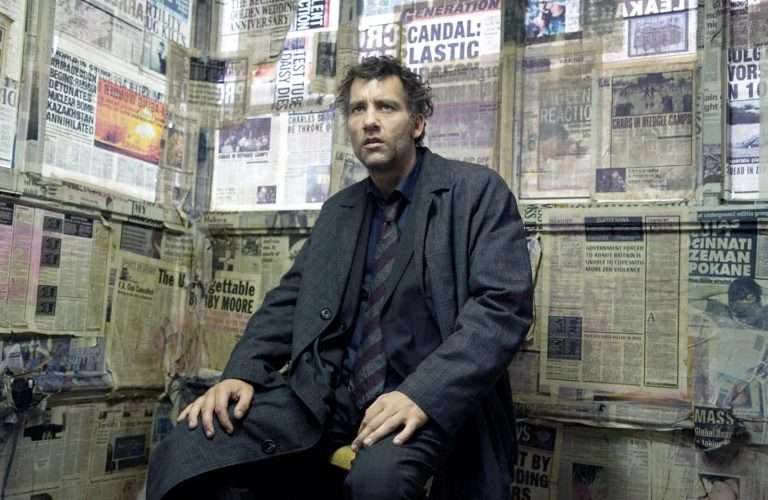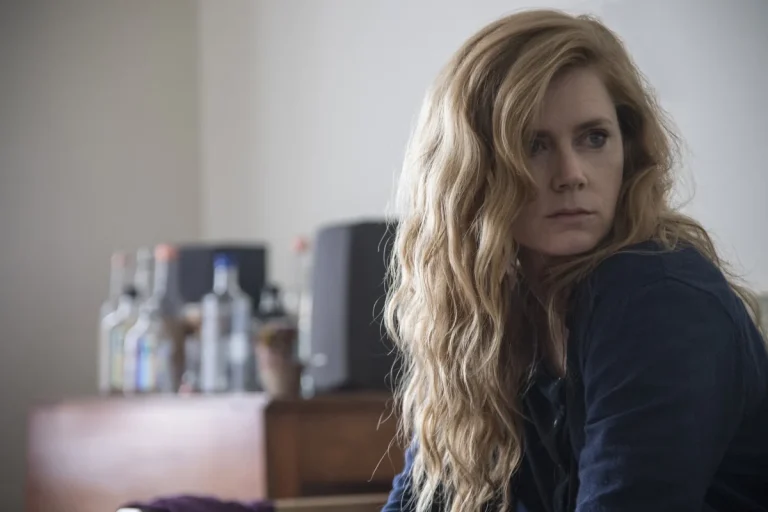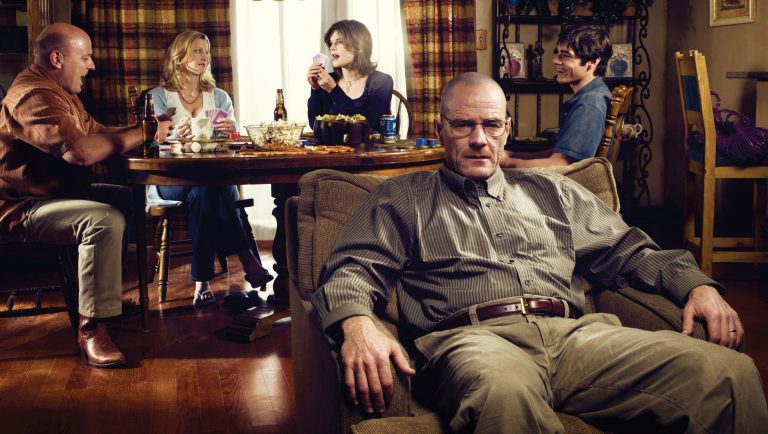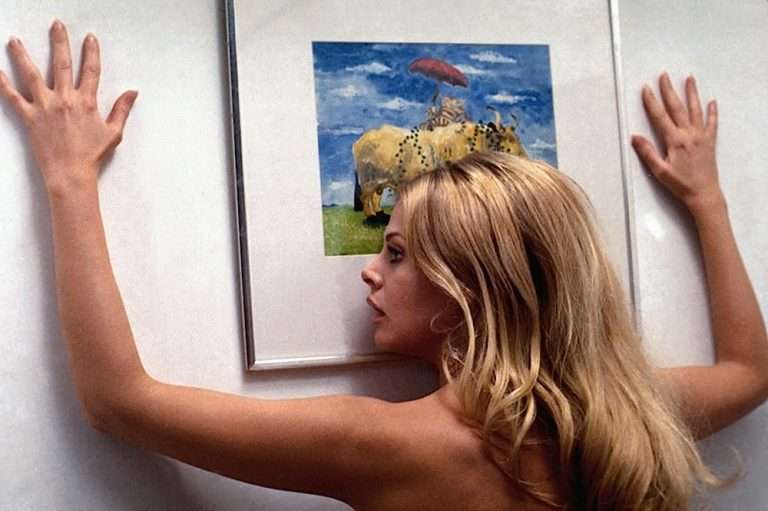Krzysztof Kieslowśki made ten one-hour-long movies for the Ten Commandments for Polish television in collaboration with his friend and lawyer Krzysztof Piesiewicz. However, which Commandment corresponds to which movie has been a heated issue of debate in film studies since the release of “Dekalog” in 1989, clearly because Kieslowski did not want to restrict discussion to a narrow interpretation of morals or ethics but a more profound reflection upon human nature itself. While it isn’t necessary for one to watch the episodes in order, nor are any of the episodes dependent on others, viewing all the episodes is quintessential to completely appreciate what the makers have to offer.
“No idea, no problem, nothing is more important than the life of a child,” proclaims Zofia, the protagonist of “Dekalog VIII.” Death, specifically the death of children, is one of the many recurring themes close to the very heart of Kieślowski’s “Dekalog II,” dealing with the death of an unborn child. Dorota (Krystyna Janda) is pregnant; the father is not her husband but another. Her husband, Andrzej (Olgierd Łukaszewicz), is critically ill; he is being treated by a doctor (Aleksander Barzini) who lives in the same drab Warsaw apartment building as her and many other characters of the Dekalog. If her husband is to live, Dorota will have an abortion, but if he is to die, she can keep her baby.
So goes the central conflict at the heart of this story. Unlike VIII, this is not a philosophical examination of a person’s morals or a moral code but a very real situation unfolding in real-time, where there is little time for anyone to be bothered by lofty valuations of morality. There isn’t a single Commandment put on trial here, but the whole moral basis of the Ten Commandments and their utility in the very complex situations of people’s ordinary lives. This is the story of Dorota, before anyone or anything else; the story of a woman caught in a unique dilemma, and Kieślowski is a skilled enough director to sensitively portray this story without being distracted by political, ethical, or moral commentaries, which happen only after the fact, in classrooms or among ‘scholars’ or critics to feed their economy.
“Do you know it is possible to love two men at once? It is! Do you understand?” Dorota asks the doctor early in the film after explaining her situation to him. She isn’t in a moral quandary over her actions. She knows she has cheated, but she also knows that she loves her husband. At the same time, there is no doubt in her mind that she would abort the child if her husband were to live.
By telling the doctor her situation, she has passed on a grave moral responsibility onto his shoulders, and the doctor does not like it one bit. As he explains to her quite clearly and bluntly, “I cannot pass a sentence.” While his symptoms are bad and getting worse, there is no certainty that he will not recover, and indeed, in his years of practice, he emphasizes, he has seen seemingly healthy patients deteriorate drastically to death and seemingly hopeless patients making it back. One cannot help but compare the doctor’s skepticism of (medical) science with Krzysztof’s complete submission to it in “Dekalog I.”
Making such a comparison can also prove dangerous as it might lead one to draw false conclusions, while the only correct one is that there are only false gods. The doctor is old and experienced enough to know this. When Dorota asks him about his religious orientation, he answers cryptically, “I have my own god. That’s enough for myself only, I guess.” This whole heated conversation is punctuated by a curious shot/reverse-shot inversion where we don’t see the person who is talking but the one listening until we come to Dorota again: “Then ask your god for absolution.”
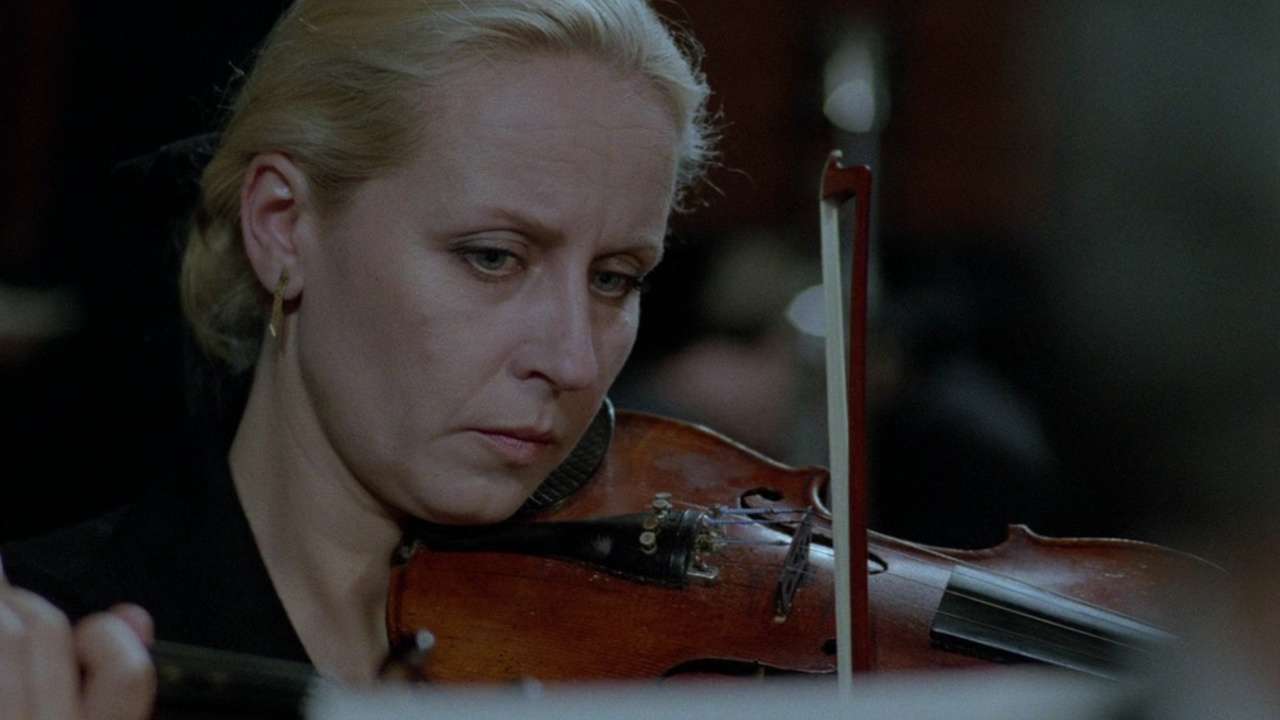
Now, whether he likes it or not, the doctor is forced to play god. Like the Christian god, we are never given his name. We only know of his life in tiny bits and pieces, like the short episodes he narrates to his cleaning lady, Miss. Barbara, or perhaps in tiny blink-and-you-miss moments: when Dorota rings his doorbell, he flips a family photo to face the wall before opening the door. This is a character not unlike the Tailor in VIII, another unnamed tragic figure who has faced immense, irreparable loss throughout their life, the loss so unbearable, they’ve suppressed and shut down so low, and with such effort that, in the process, they themselves never came all the way back up. Dorota’s situation requires the doctor to go at least partly back down to these suppressed losses.
Dorota is no more approachable herself. Their initial encounter begins with the doctor saying, “You ran over my dog two years ago,” and ends with Dorota saying, “I regret it wasn’t you that I ran over.” She chain-smokes, violently rips leaves off a plant, and methodically pushes a teacup off the edge of the table to shatter it. At the same time, she also cares deeply for her ailing husband, spends hours by his side in the hospital, brings him preserved strawberries, and flips at his friends when he brings his hiking gear back home from the club, reminding him that he is still alive.
Halfway through the story, Dorota finds herself at an impasse, where she is forced to make a decision. She decides to go through with the abortion as this would be the last opportunity for one. Time and again, his humanism implores us not to judge these characters for their decisions but to understand the world from their perspectives. Wouldn’t a minute’s worth of mulling over this couple’s life lead us to believe that while she is a violinist for the philharmonic, her husband is a mountain climber who leaves her by herself for long periods of time?
Our responsibility as viewers is a grave one: while we acknowledge her adultery, we must also accept Dorota’s unique circumstance: that she loves two men and that in loving one, she does not love the other any less. Has she done wrong? Yes. Is she not human? She definitely is. Understanding her is not the same as excusing her behavior, and Kieślowski offers us the rare invitation to do just this former act.
There are two ways of reading the remainder of “Dekalog II.” In one reading, we may say that the doctor consciously lied to Dorota about her husband’s condition and even swore to those lies to prevent her from going ahead with the abortion. The second reading is that the doctor did not lie to her at all, did not swear to lie under oath, and the husband made a miraculous recovery. The very brief scene where they examine some samples of the patient ensures this ambiguity.
When the doctor asks his colleague to examine some blood samples under a microscope for his verdict, he proclaims “progression.” Progression of what, though: The metastasis of his illness or the treatment? Depending on how one reads this scene, the doctor lied, or subsequently did not, thereby violating or not violating the commandments: “Thou Shalt Not Take The Name of The Lord, Thy God in Vain” and “You shall not swear by my name falsely, and so profane the name of your God: I am the Lord.”
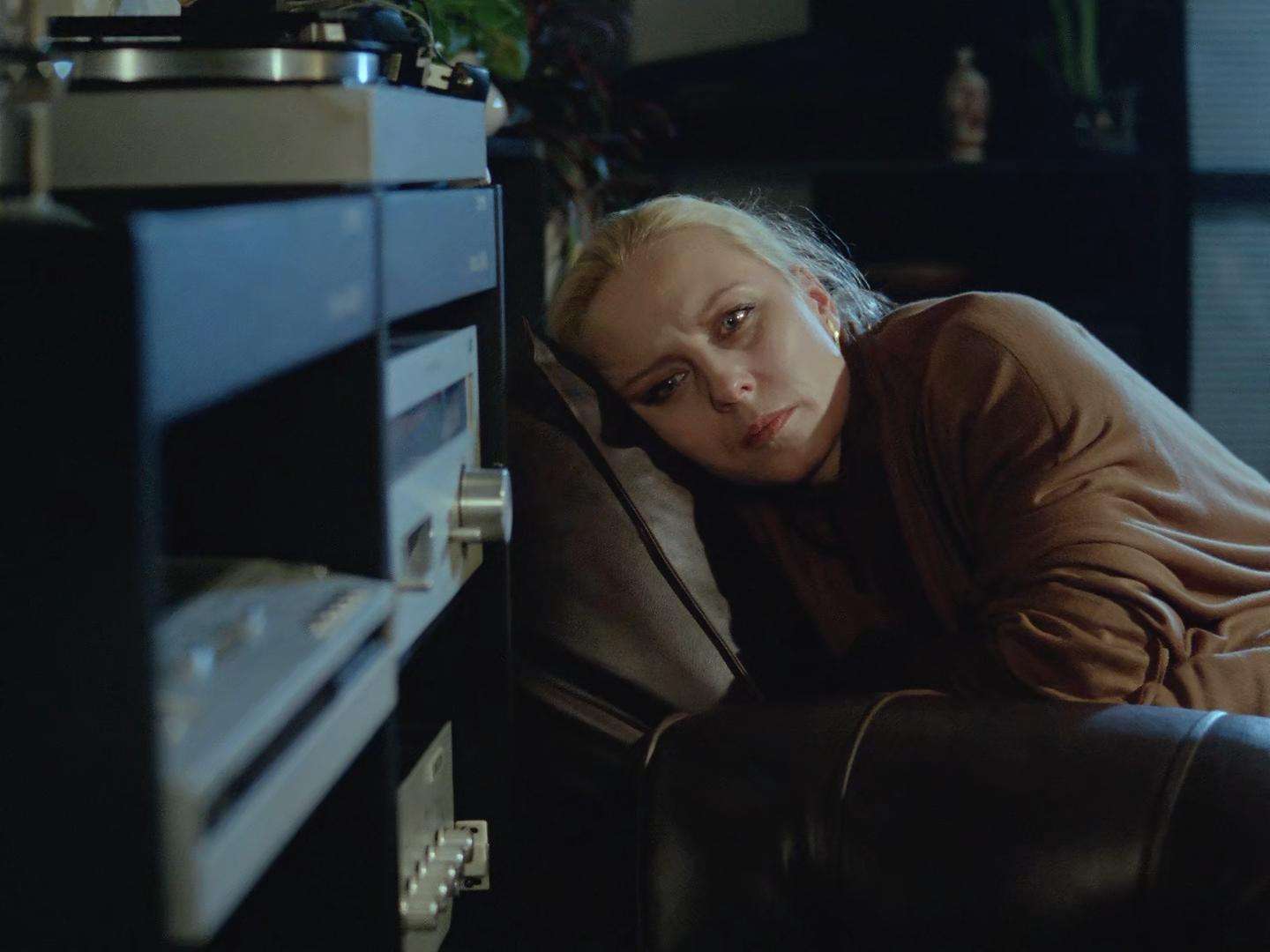
Incidentally, this is also the scene in which the mysterious ‘Young Man’ (Artur Barcis) makes his appearance, underpinning the significance of this scene. Appearing in uniform, he is perhaps a staff member at the hospital looking from behind. Considering the ambiguity around him and the theories about his nature and origins as a possible angel or demon, is it possible that the ‘young man’ had perhaps anything to do with the reading of the samples? That he perhaps altered them in any way? He appears again later, during an intimate moment with Dorota and Andrzej, again looking from behind.
The moment in which Dorota makes him swear does perhaps indicate that he lied, but one cannot be sure. The case in favor of his lying is strengthened when we find the key line left out of the film that we find in the screenplay:
“He doesn’t stand a chance.”
“Swear to it in God’s name?”
[the doctor is silent].
“Swear to it in God’s name!”
“As God is my Witness!”
In a very Kieślowski-an rift in the flow of events, in one of the most beautiful montages that words can hardly do justice, Andrzej is shown miraculously recovering. “I’m coming back from the other side,” he tells the doctor as we see him walking on his feet for the first time. And as Annette Insdorf recalls, doesn’t the doctor’s line “We don’t treat mere X-rays but real people” invoke another commandment of “Thou shalt not make unto me any graven image”?
Like Zofia, the doctor has ‘bore false witness,’ here to save the life of a child, and like Zofia, here’s Andrzej given a second chance at life. He doesn’t seem worried about his wife’s pregnancy. In fact, he is happy that they’ll have a baby! Perhaps he thinks he’s the father, or like Roman in “Dekalog IX,” has come to terms with his wife’s infidelity and accepted her love, which she proved by staying by his side throughout his illness, or perhaps, none of these things really matter to him that much in light of the new life that he has been given. Again, here shines Kieślowski’s faith in and affirmation of life: the belief that life in all its ugliness is still worth living. Just like Krzysztof in “Dekalog I,” the doctor’s life is marred by the loss of his children at a very young age, while here, Andrzej and Dorota are given a chance to become parents.
Kieślowski’s is a world like our world, but not really. With bold overtures of Zbigniew Preisner’s music taking the foreground, harsh lighting in dimly lit rooms, the very Kieślowski-an visual motifs of slowly dripping water through cracks in walls, the density of milk, contorted potted plants slowly straightening themselves up, peering through red screens, and close-ups of bees, if “Dekalog VIII” was the least subtle, “Dekalog II” is Krzysztof Kieślowski at his most poetic.

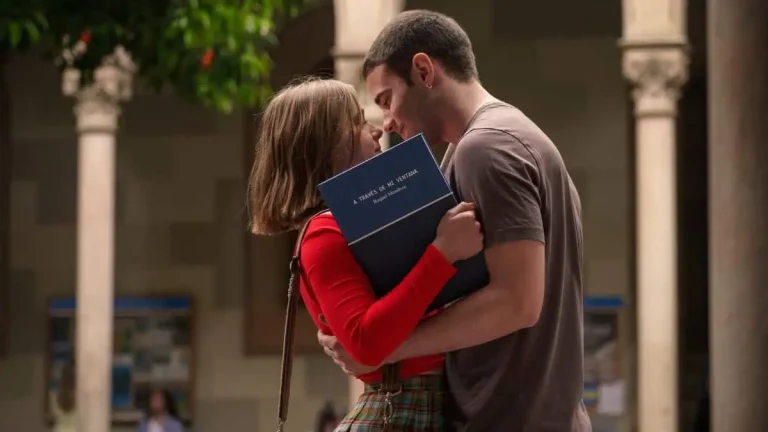
![Salt of the Earth [1954] – A Landmark American Independent Cinema on the Working Class](https://79468c92.delivery.rocketcdn.me/wp-content/uploads/2021/07/Salt-of-the-Earth-1954-768x432.jpg)
